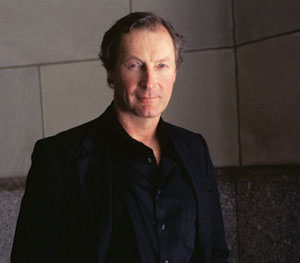February/March 2016 |view this story as a .pdf
“Maine is my second home,” says Michael C. White. His new novel Resting Places hijacks readers across the country and keeps them up at night.
Interview by Claire Z. Cramer
 Resting Places opens in the middle of a hectic day in the life of successful Connecticut attorney Elizabeth Gerlacher. She’s juggling her career, her pro-bono legal work, her unresolved grief over the accidental death of her 21-year-old son Luke a year earlier in New Mexico, and her drinking problem. A series of encounters propels Elizabeth “to go deep into what she was not even aware she possessed–her soul,” says author Michael C. White. “Her story becomes that of a journey-quest… As in all quest stories, her journey is aided by strangers.”
Resting Places opens in the middle of a hectic day in the life of successful Connecticut attorney Elizabeth Gerlacher. She’s juggling her career, her pro-bono legal work, her unresolved grief over the accidental death of her 21-year-old son Luke a year earlier in New Mexico, and her drinking problem. A series of encounters propels Elizabeth “to go deep into what she was not even aware she possessed–her soul,” says author Michael C. White. “Her story becomes that of a journey-quest… As in all quest stories, her journey is aided by strangers.”
When he’s not writing on the coast of Maine in the summer, White is a professor of English and the founder and director of Fairfield University’s MFA Creative Writing Program. A prolific writer and author of six novels including Soul Catcher and Beautiful Assassin, he was on the faculty at USM’s Stonecoast MFA program. His novel A Brother’s Blood shows he knows and loves Maine to the bone. He keeps a summer cottage in Boothbay Harbor.
How did you choose a parent’s loss of a child as the cornerstone of Resting Places?
Fortunately, I’ve never had to experience the death of a child. The essence of the story came to me many years ago when I began to notice those little crosses people put up–roadside memorials marking where a loved one has been killed in an accident. At first, I simply thought they were odd. Then I began to wonder what sorts of people put up memorials–in Spanish, descansos, or “resting places”–and what the memorials say both about the dead and those who have put them up. Finally, I drove cross country–as my character Elizabeth does–and stopped at hundreds of memorials, all dealing, as Elizabeth must, with the death of a loved one. While some of the memorials consist of just a simple cross, most tell entire stories.
The crosses on the descansos in the story–and on the cover–suggest a Christian theme, but Resting Places cannot be so easily pegged.
I intend Resting Places to be about the broader questions of faith and spirituality. What Elizabeth learns along the way and what she comes to understand at the end is far from what she thinks she’ll get when she begins.
It takes Elizabeth some time to learn to travel beyond her own assumptions. Were you just a little hard on her?
That’s an interesting notion–an author being too hard on his characters! However, I’ve known a lot of Elizabeths–smart, professionally successful people who are unhappy in their personal lives because of some major flaw in their character. They are often so blind or righteous or stubborn that they hurt others as well as themselves. I was hard on Elizabeth because she is so hard on herself. She has to learn to forgive herself.
Where is your peaceful place of renewal when you visit Maine?
I love Moosehead Lake, to camp and to hike. And I feel at home when I’m writing in Maine. The woods, the sea, the mountains, the very air–all inspire me.
Resting Places (OpenBooksPress, 2016, $16.95 paperback) is available March 1.
Comments or questions about this story? Email us now!






0 Comments